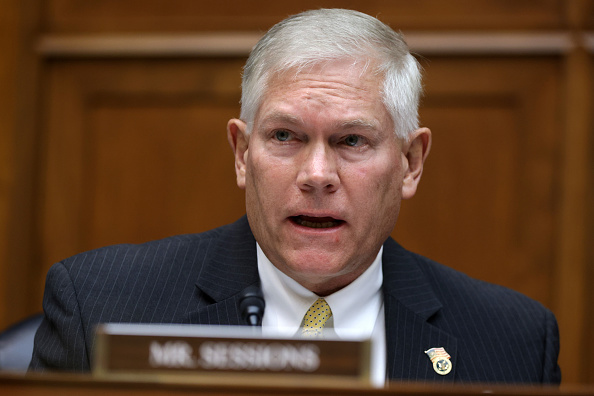Congress is considering legislation that would undo key provisions of Obamacare and promote choice in how Americans receive health care.
The bill would “eliminate the individual and employer mandates under the Patients Protection and Affordable Care Act [ACA, or Obamacare], to expand beyond that Act the choices in obtaining and financing affordable health insurance coverage, and for other purposes.” Several reporting requirements tied to the individual and employer mandates would also be eliminated.
The “Health Care Equality and Modernization Act of 2022” (H.R. 7258) is largely an updated version of a measure current bill sponsor Pete Sessions (R-TX) and Sen. Bill Cassidy (R-LA) introduced in 2016.
Tax Credits for All
One of the bill’s most innovative features is a proposal to take all health-care-related tax and spending subsidies and direct the money to create a refundable tax credit for everyone not on a government program such as Medicaid or Medicare. The bill also makes employer-provided health insurance portable and allows 24/7 access to “direct primary care” without having to go to the emergency room at night or on weekends.
Sessions’ bill would also clarify an employer’s ability to reimburse employee premiums for the purchase of individual health insurance under a health reimbursement arrangement.
ACA provisions such as requiring coverage of people with preexisting conditions, prohibitions on discrimination based on health status, and mandated coverage of dependents through age 26 would remain in place.
More Options
The bill would give states flexibility to ensure a competitive health insurance market outside the Obamacare exchanges.
“With respect to health insurance coverage offered in a State, the State may, in consultation with the Secretary [of HHS], take such steps, such as limiting the availability of general open enrollment periods, imposing delays in the effectiveness of coverage, permitting differentials in premiums based on age and other factors, as the State determines necessary in order to ensure an orderly market for health insurance coverage in the State that is not offered through an Exchange,” the bill states.
The bill would also allow states to “provide for the enrollment of residents of the State who are uninsured in default health insurance coverage … and establishing a Roth HSA [Health Savings Account] for such residents who do not have a Roth HSA unless the resident has affirmatively elected not to be so enrolled and not to have such an account, respectively. If a State makes such an election, the state shall permit eligible residents to enroll in such coverage on a continuous basis.”
In addition, the bill would allow states to “permit the adjustment of risk among health insurance coverage” in the individual market, like the risk adjustment used in Medicare Advantage plans.
Back to Insurance Basics
In keeping with the bill’s goal of enhancing consumer choice, Sessions’ legislation encourages states to offer “basic health insurance” on exchanges serving state residents. The bill defines basic health insurance as “such health insurance coverage as a State may specify and includes limited benefit insurance.”
Defenders of the ACA sometimes refer to basic health insurance as “junk plans,” indicating their clear preference for government-directed insurance coverage.
Up for Debate
With Democrats in control of Congress and the White House, Sessions’ bill has no chance of passage this year. It could pick up steam if Congress changes hands in the November midterms. Even then, it would face a certain presidential veto, and the bill would then become part of the health care debate leading up to the 2024 presidential election.
“The Sessions health plan is an idea whose time has come,” said John Goodman, president of the Goodman Institute and co-publisher of Health Care News. “The core concept: take all the spending and tax subsidies we now provide to private health insurance and use that money to give every American not on a government plan a refundable tax credit.”
“This would empower people instead of employers and insurance companies,” said Goodman. “Competition in the marketplace would be the vehicle to meet consumer needs.”
‘Real Health Reform’
Dean Clancy, a senior fellow in health care policy with Americans for Prosperity, approves the proposed expansion of choice.
“The Health Care Equality and Modernization Act would give Americans a personal option instead of a one-size-fits-all government option, empowering them with more choice and control and removing barriers between patients and medical professionals they trust,” said Clancy. “This is what real health reform looks like.”
Bonner Russell Cohen, Ph.D. (bcohen@nationalcenter.org) is a senior fellow at the National Center for Public Policy Research.
For more great content from Health Care News.





















